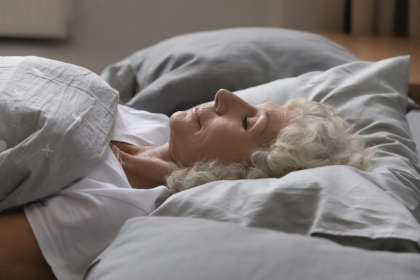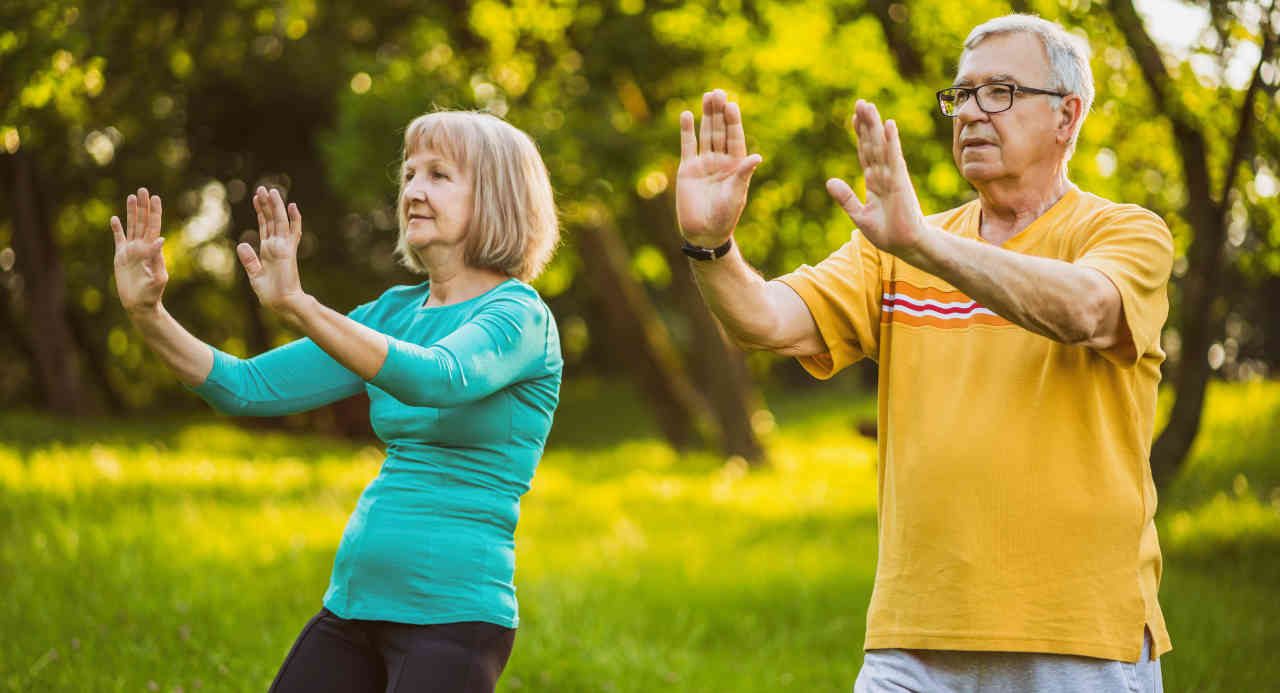Tai Chi is a wonderful exercise that seniors can truly enjoy. This ancient, low-impact exercise offers a wealth of demonstrated health benefits, making it particularly suitable for those experiencing arthritis pain, recovering from surgery or falls, or relying on wheelchairs for mobility.
No More Pill Sorting! Our Pharmacy Pre-sorts and Packages Your Pills
As we age, our bodies undergo changes, and high-intensity workouts can become challenging. Tai Chi, however, is a gentle yet incredibly effective exercise that can help you maintain your overall health and well-being.
In this article, we’ll take a look at the fundamentals of Tai Chi, its potential to enhance the health of seniors, and how you can easily incorporate this practice into your life, often in the comfort of your own home.
What Is Tai Chi?
Tai Chi is an ancient mind-body exercise, often known as “meditation in motion” or “medication in motion.” It originated in China centuries ago and has become a popular exercise worldwide due to its scientifically shown health-promoting benefits.
In fact, in China, most older people do Tai Chi regularly to develop strength, flexibility, balance, and endurance.
Tai Chi requires coordination and deep focus and consists of a series of movements that are practiced in a slow, rhythmic, and focused manner combined with deep breathing. This exercise relaxes the mind and strengthens the body.
Main Elements of Tai Chi
The main elements of Tai Chi are meditation, concentration on breathing, and deliberate movement. Each element has its own purpose. For instance, concentration on each movement helps the mind to relax and relieve stress. At the same time, deep breathing and focus help to improve balance, which prevents the risk of falls and injuries.
Potential Benefits of Tai Chi for Seniors
Tai Chi offers a number of health benefits for young as well as older people. Here are some of the major scientifically documented benefits:
It Reduces the Risk of Falls and Fear of Falling
For seniors, one of the biggest benefits of practicing Tai Chi is its ability to reduce the risks of falling. Falling or fear of falling is one of the most common problems among older adults.
According to a CDC report, around 36 million falls are reported among older people each year in the U.S., and nearly half of those who have never fallen have a fear of falling. This fear can cause some seniors to limit physical and social activities, which in turn influences their quality of life.
Research shows that regularly practicing Tai Chi reduces the risks of accidental falls or injury by up to 50% in older people. Since this practice teaches slow and controlled movements and emphasizes balance and coordination, it strengthens the muscles in the legs and improves core strength, resulting in reduced chances of accidental falls and the fear of falling in older adults.
It Improves Sleep Quality

Tai Chi also improves sleep quality. Sleep problems (e.g., insomnia) are common in seniors. Instead of taking sleep medication, doctors often recommend exercise or yoga to older people for good sleep.
Various studies reported that Tai Chi has positive effects on improving sleep quality compared to other active and non-therapeutic treatments.
It Reduces Chronic Pain
Tai Chi is found to be effective in reducing chronic pain in various parts of the body, which nearly 85% of older adults experience.
In fact, a study published in the Journal of Rheumatology reported that Tai Chi could help reduce symptoms and improve physical functioning in arthritic patients. The slow movements in Tai Chi help the joints retain their range of motion and prevent further joint stiffness.
Aside from arthritis, Tai Chi is also effective for treating pain from osteoporosis, fibromyalgia, and sciatica when practiced for one hour twice a week.
Get Your Pills Pre-sorted and Delivered at No Extra Cost
It Is Good for Cardiovascular Health
Though Tai Chi is not an intense form of aerobic exercise, the relaxing and breathing elements of this exercise improve cardiovascular system health. It lowers blood pressure, reduces inflammation in the body, lowers triglyceride levels, and can increase levels of “good” cholesterol.
Even heart attack survivors can do this form of exercise daily and improve their quality of life as long as their doctor clears them to partake.
Other Health Promoting Benefits
Based on a wide array of studies, Tai Chi offers various other health-promoting benefits, such as:
- It reduces stress, anxiety and depression
- It reduces bone loss in menopausal women
- It provides cognitive benefits, such as slowing cognitive decline in people with mild dementia.
- It promotes faster recovery from strokes and heart attacks
- It improves social interaction
- It improves immunity and enhances posture
How To Start Tai Chi?
Tai Chi focuses on posture and exact movements to develop proper form, which is difficult to learn independently. If you’re a beginner interested in starting Tai Chi, look for larger gyms, fitness communities, or studios that offer Tai Chi classes.
In summary, Tai Chi is a holistic practice for seniors with various health benefits. Its gentle yet effective nature can help older people maintain physical, mental, and emotional well-being.
REFERENCES:
- Adler, P. A., & Roberts, B. L. (2006). The use of Tai Chi to improve health in older adults. Orthopaedic Nursing, 25(2), 122-126.
- Chen, W., Li, M., Li, H., Lin, Y., & Feng, Z. (2023). Tai Chi for fall prevention and balance improvement in older adults: A systematic review and meta-analysis of randomized controlled trials. Frontiers in Public Health, 11, 1236050. https://doi.org/10.3389/fpubh.2023.1236050
- Hosseini, L., Kargozar, E., Sharifi, F., Negarandeh, R., Memari, H., & Navab, E. (2018). Tai Chi Chuan can improve balance and reduce fear of falling in community-dwelling older adults: A randomized control trial. Journal of Exercise Rehabilitation, 14(6), 1024-1031. https://doi.org/10.12965/jer.1836488.244
- Lomas-Vega, R., Obrero-Gaitán, E., Molina-Ortega, F. J., & Del-Pino-Casado, R. (2017). Tai Chi for Risk of Falls. A Meta-analysis. Journal of the American Geriatrics Society, 65(9), 2037-2043. https://doi.org/10.1111/jgs.15008
- Mortazavi, H., Tabatabaeichehr, M., Golestani, A., Armat, M. R., & Yousefi, M. R. (2018). The effect of Tai Chi exercise on the risk and fear of falling in older adults: a randomized clinical trial. Materia socio-medica, 30(1), 38.
- Siu, P. M., Angus, P. Y., Tam, B. T., Chin, E. C., Doris, S. Y., Chung, K. F., … & Irwin, M. R. (2021). Effects of Tai Chi or exercise on sleep in older adults with insomnia: a randomized clinical trial. JAMA network open, 4(2), e2037199-e2037199.
- Raman, G., Zhang, Y., Minichiello, V. J., & Wang, C. (2013). Tai Chi Improves Sleep Quality in Healthy Adults and Patients with Chronic Conditions: A Systematic Review and Meta-analysis. Journal of Sleep Disorders & Therapy, 2(6). https://doi.org/10.4172/2167-0277.1000141
- Song, R., Lee, E. O., Lam, P., & Bae, S. C. (2003). Effects of tai chi exercise on pain, balance, muscle strength, and perceived difficulties in physical functioning in older women with osteoarthritis: a randomized clinical trial. The Journal of Rheumatology, 30(9), 2039-2044.
- Ferrara, P. E., Salini, S., Maggi, L., Foti, C., Maccauro, G., & Ronconi, G. (2019). Evaluation of quality of life and static balance in postmenopausal osteoporosis women after Tai Chi Chuan practice: an observational randomized case control study. Journal of Biological Regulators and Homeostatic Agents, 33(2 Suppl. 1), 163-169.
- Tsai, J. C., Wang, W. H., Chan, P., Lin, L. J., Wang, C. H., Tomlinson, B., … & Liu, J. C. (2003). The beneficial effects of Tai Chi Chuan on blood pressure and lipid profile and anxiety status in a randomized controlled trial. The Journal of Alternative & Complementary Medicine, 9(5), 747-754.
- Sungkarat, S., Boripuntakul, S., Kumfu, S., Lord, S. R., & Chattipakorn, N. (2018). Tai Chi improves cognition and plasma BDNF in older adults with mild cognitive impairment: a randomized controlled trial. Neurorehabilitation and neural repair, 32(2), 142-149.
- Abbott, R., & Lavretsky, H. (2013). Tai Chi and Qigong for the Treatment and Prevention of Mental Disorders. The Psychiatric Clinics of North America, 36(1), 109. https://doi.org/10.1016/j.psc.2013.01.011
- Tam, H. L., Leung, L. Y. L., & Chan, A. S. W. (2023). Effectiveness of Tai Chi in patients with hypertension: an overview of meta-analyses. Journal of Cardiovascular Nursing, 38(5), 443-453.
- Li, J., Guo, J., Wang, X., Zhang, X., Zhang, Y., Bu, M., … & She, Y. (2023). Efficacy and safety of tai chi exercise on bone health: An umbrella review. Osteoporosis International, 1-14.


